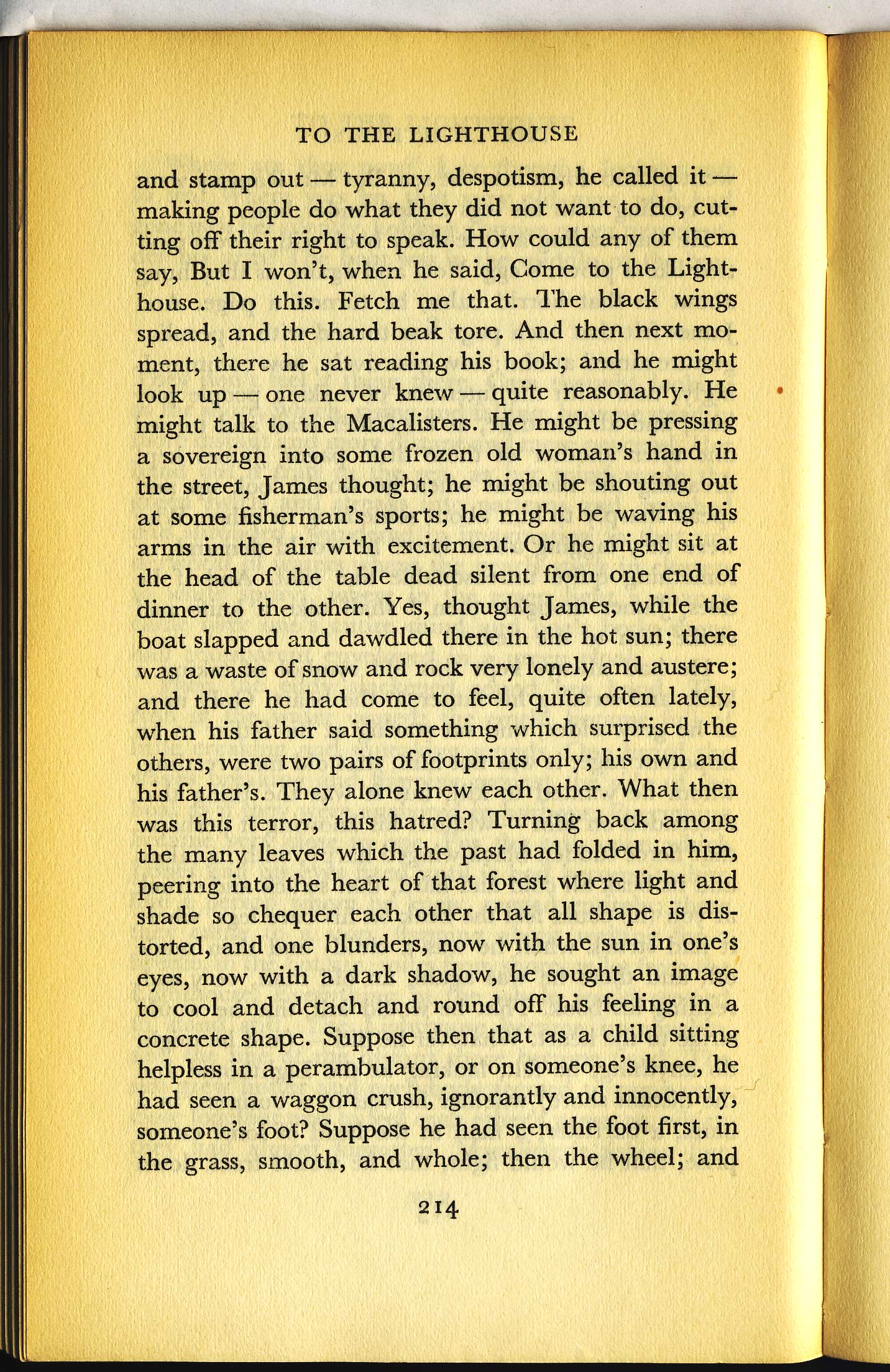
TO THE LIGHTHOUSEand stamp out — tyranny, despotism, he called it —making people do what they did not want to do, cut-ting off their right to speak. How could any of themsay, But I won’t, when he said, Come to the Light-house. Do this. Fetch me that. The black wingsspread, and the hard beak tore. And then next mo-ment, there he sat reading his book; and he mightlook up — one never knew — quite reasonably. Hemight talk to the Macalisters. He might be pressinga sovereign into some frozen old woman’s hand inthe street, James thought; he might be shouting out
at some fisherman's sports; he might be waving his
arms in the air with excitement. Or he might sit at
the head of the table dead silent from one end ofdinner to the other. Yes, thought James, while theboat slapped and dawdled there in the hot sun; therewas a waste of snow and rock very lonely and austere;and there he had come to feel, quite often lately,when his father said something which surprised theothers, were two pairs of footprints only; his own andhis father’s. They alone knew each other. What thenwas this terror, this hatred? Turning back amongthe many leaves which the past had folded in him,peering into the heart of that forest where light andshade so chequer each other that all shape is dis-torted, and one blunders, now with the sun in one’seyes, now with a dark shadow, he sought an imageto cool and detach and round off his feeling in aconcrete shape. Suppose then that as a child sittinghelpless in a perambulator, or on someone’s knee, hehad seen a waggon crush, ignorantly and innocently,someone’s foot? Suppose he had seen the foot first, inthe grass, smooth, and whole; then the wheel; and214








